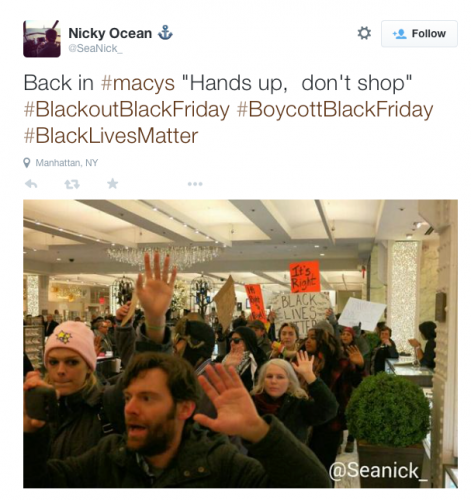
This one time I got to meet Reverend Billy and his Stop Shopping Choir. They’re fun people with a knack for spectacle. The Reverend dresses up in all white to match his brilliant, platinum pompadour, and leads people into a mall or a busy street corner to preach and sing about the evils of consumer society. A small group of us exorcised a Bank of America ATM which was a great diversion for reaching around and unplugging it. All in all it was a lovely afternoon but today I’m nervous about the way people who look like me (white) are organizing around this topic. Given that it is prime time for shopping, it also means it is an excellent opportunity to protest the intricate tapestry of social norms and institutions that make up present-day consumerism. It is certainly true that lots of people should probably consume less than they do, but the activism around consumerism is often tin-eared and tone deaf when it comes to issues of class and, as we are seeing this year, race. more...








